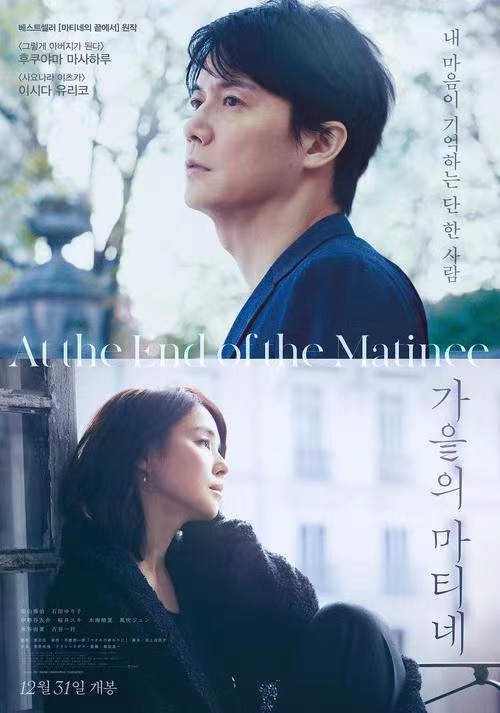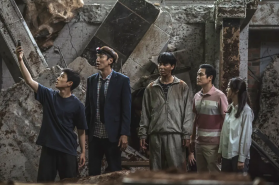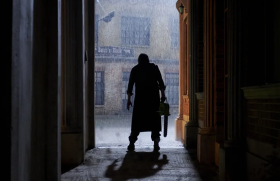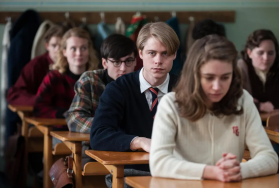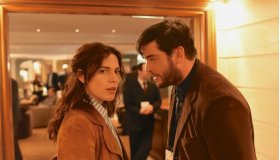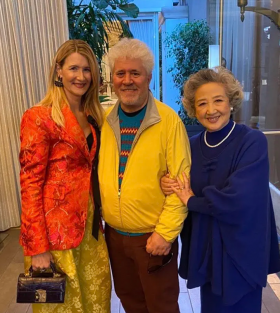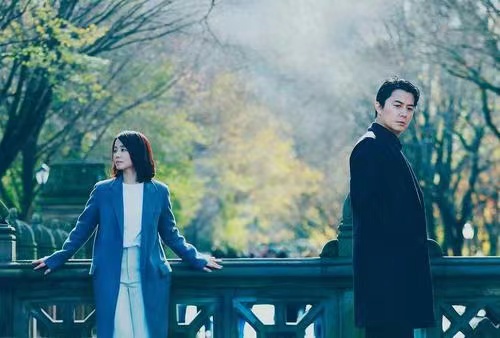
"The Final Chapter of the Play" is a Japanese musical romance film released in 2020, also known as "Daytime Recital", directed by Hiroshi Nishitani, starring Masaharu Fukuyama and Yuriko Ishida, and based on the best-selling novel by Keiichiro Hirano. When Maki Noe finally has the courage to tell Yoko how he feels about her, but Yoko is already someone else's fiancee, why do the strangers, who have only met three times, decide that they are the love of their lives?
It's at dusk that you can see everything
I once heard someone say, "Nothing in life is absolute." When we feel regret because of our losses and mistakes, there are always people who tell us that the outcome now is not necessarily worse than before and that there are more opportunities to try to help us forget these pains now, but the only way to face regrets and mistakes is really to accept them meekly or let them go gradually with time? The movie "The Final Chapter of the Play" is the use of the film between Masaharu Fukuyama and Yuriko Ishida two, this kind of love is not blocked by time and distance to give us another answer.
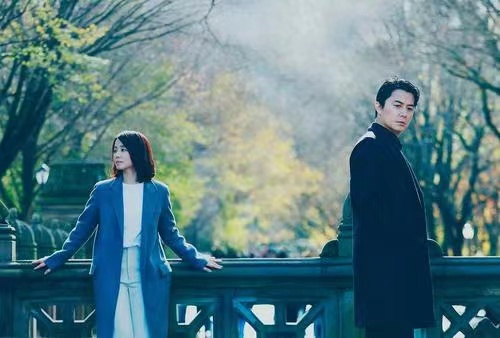
Is the evaluation of "The Final Chapter of the Play" good?
Can you imagine a romance in which the hero and heroine only formally meet three times? Although it is not as perverse as the French film "Somewhere, Someone" where the hero and heroine do not meet until the last scene, "The Final Chapter of the Play" takes advantage of the fact that they are separated by many complicated factors and cannot be together even though they long for each other in their hearts, and brings the audience a heart-wrenching experience in these two hours. It is a heart-wrenching and uncomfortable experience.
Who says that love stories must have a specific form? Perhaps the mature love of middle-aged people is not as romantic and sweet as the youthful fluttering of teenage men and women, but with the interpretation of two well-known actors with impeccable acting skills, Masashi Fukuyama and Yuriko Ishida, to the current state of mind of the characters, "The Final Chapter of the Play" can still let the audience feel the strong feelings between the hero and heroine even though they can not see each other for many years, and there is not much intercourse in their ordinary lives, but after The strong emotions that have not disappeared and can be rekindled at any time after a long time of separation.
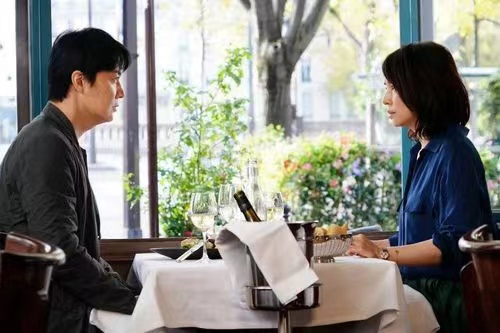
The final chapter of the play
Adapted from the original novel by Japan's youngest Akutagawa Award winner Keiichiro Hirano, "The Final Chapter of the Play" completely captures the essence of a film adaptation of a novel. In addition to the unfulfilled love between the couple, the film also explores the changes that occur in a person's heart through the catalyst of time and emotion through this layer of relationship.
Maki Noe, a highly respected guitarist, has lost his youthful enthusiasm and drive as he enters middle age. As a foreign journalist, Yoko suffers from post-traumatic stress syndrome (PTSD) after seeing her colleague die in a terrorist attack. The degree of entanglement deeply affects the course of their lives.
.png?1653973952584)
The heart-wrenching love of "The Final Chapter of the Play"
Perhaps the plot of "The Final Chapter of the Play", in which the hero and heroine, who originally seemed to be a perfect match, miss each other for some reason, and then learn the truth years later that both of them are already married and have children, is very cliched, but there is no denying that the movie allows us to see Maki Noe and Yoko, two middle-aged people who originally thought that they had no motivation to take risks and pursue their ideal love because they were mature and worldly, or already had a stable life, through their lifelong determination to leave their original comfort zone for each other and face challenges again, it is still very direct proof that the cliched story works and can trigger the audience's resonance with their current situation or future imagination.
In the end, it is the faith in love that adults who no longer believe in love regain that is the greatest appeal of the love story "The Final Chapter of the Play". I like the author's choice to not only make the audience feel heartbroken, but also to present the mature love that belongs to adults in a realistic way, especially when the relationship seems to be over and both parties almost give up, but they maintain their own families while not forgetting each other. The story has a very unique flavor even in the midst of the cliches.
The theme of the ending of "The Final Chapter of the Play
With the film's ingenious design of the main and supporting characters and the flow of emotions between them, we will not criticize the choices made by the two protagonists of "The Final Chapter of the Play" for the relationship, whether it is Yoko leaving her fiance or Maki Noe cheating on her after marriage, these actions that seem morally flawed from our social values become extremely reasonable and insignificant before the love of the two. This is because love for someone can never be explained or regulated by any rules, as is the case with Maki Noe and Yoko, and the same is true of Hayao, the agent who wants Maki Noe to achieve his dreams for the sake of love by any means necessary, and who will always stay behind him.
Maki Noe says, "People always think they can only change the future, but the truth is that the past also changes with the future from time to time." Whether it is Yoko changing her mind about the stone in the courtyard after her grandmother's death, gradually digesting her fear of the sound of thunder after she learns the truth from Hayao, or the two main characters reuniting after years of misundthe film uses the stone, which is the root of all the pain, to tell the story of how "today's sorrow can become a good memory because of tomorrow's meeting" from its symbolic meaning. The symbolic meaning of the stone tells the truth that "today's sorrow can become a beautiful memory because of tomorrow's meeting", which is very touching.
